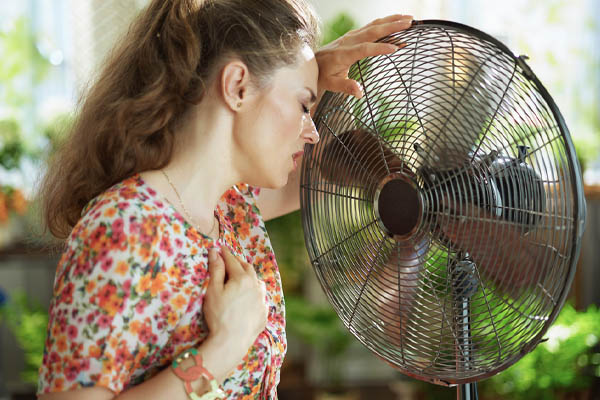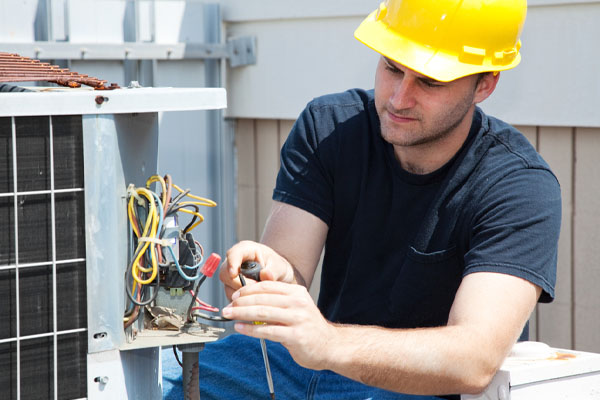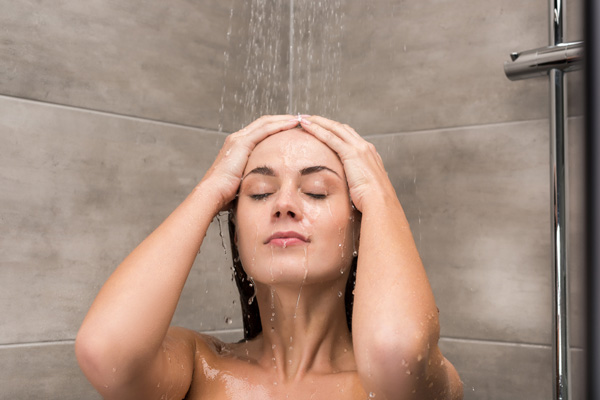
There’s an appeal to the lazy heat of summer, but there are also certain risks on those scorching hot days. The CDC (Center for Disease Control and Prevention) cites several risks that include sunburn, dehydration, heat exhaustion, and heatstroke. These risks should not be taken lightly. The EPA (Environmental Protection Agency) reports that a frightening one thousand three hundred United States citizens actually die from hazards associated with heat/overheating. This statistic alone illuminates the importance of learning to stay cool during the hottest days of the year. Plan ahead, and make sure your HVAC system is in peak condition before summer arrives. This way, you can avoid air conditioner emergencies. However, homeowners should also know how to keep cool if it malfunctions.
How To Avoid Heat Exhaustion When Your Air Conditioner Fails
Table of Contents
Below, we discuss some useful ways to avoid heat exhaustion and heat stroke when your air conditioning system unexpectedly stops working.
Properly Maintain & Care For Your Air Conditioner

It is wise to schedule an air conditioner checkup/maintenance in the spring before the steamy days of summer arrive. Most breakdowns can be avoided altogether by having your unit inspected and tuned up by a professional. You should also check with a professional to be sure your unit is the right one for the job of cooling your home.
The United States Department of Energy states that a setting of 78° is the optimum temperature setting for an air conditioning unit. This may seem high to some, but when comparing the indoor comfort with the humid air outside, it really isn’t too bad. An extremely chilly atmosphere inside can be expensive and a strain on even the best cooling unit. Sometimes an older unit or one that is too small for the job can be overworked when battling high temperatures outside. This ultimately brings the demise of the unit and, consequently, the end of your cooler, more comfortable, and safer household temperatures.
How To Beat The Heat
There are ways that you, your family, and even your pets can “beat the heat” without your air conditioning unit. Try taking some of the following measures for both comfort and safety until your HVAC contractor arrives to repair your cooling unit.
Hydration

As a natural reaction to hotter temperatures, you will sweat. It is a natural cooling response: as your sweat evaporates, it will cool the body. Unfortunately, sweating also removes the much-needed water and with it, the electrolytes and minerals that keep your system in balance. This dehydration, or loss of water, etc., that often happens in the summer months can bring on heatstroke and more. For this reason, Harvard Medical School recommends drinking a minimum of eight glasses a day. Keeping your body hydrated can help replenish what you have lost, maintain a safe body temperature, and avoid the dangers of dehydration.
Appliances Generate Heat
If the goal is to keep your home as cool as possible, avoid the culprits that generate heat. These include but are not limited to:
- Ovens
- Computers
- Washing machines
- Clothes dryers
- Vacuums
- Hair Dryers
- Toasters
- Stoves/ovens
These and more make life a little more pleasant. However, in the interest of comfort and safety, go without them while you are waiting for your air conditioner repair. If you can’t eliminate them, at least keep their use to a minimum.
Cool Showers

A cool shower or a soak in a bathtub filled with cool water can bring quick relief from the heat. The excessive heat from your body will simply slip away in the water. A word of caution, however- your body could react to a very cold shower by shivering and increased blood flow to fight the cold. When you leave the shower, your body will continue to react that way for a while, and you may end up feeling even hotter. The trick is to make the water cool and stay in the water long enough to adapt to the coolness. Once you’ve adjusted, your body will cool down, and the initial natural resistance to the cold will cease.
Lower Equals Cooler
Those of you with basement rec rooms know how much cooler it is down there in the summer months. Between the fact that warmer air goes up, and the upper floors are close to the roof that the sun is hitting all day long, the rooms in the upper floors of your home are likely to be the hottest. Try to spend your time on the lower levels of your home. If you have a family room in your basement, count your blessings.
Clothing Makes a Difference
Unexpectedly, National Public Radio claims that fewer clothes in the hotter months actually makes you more prone to dehydration. The logic behind their statement is sound. More exposed skin will sweat more freely, and the risk of losing too much water becomes a concern. Natural fibers are the best choice in summer’s heat. They slow down the evaporation. You should stay away from body-hugging clothes made from materials like polyester and nylon.
Open or Closed Windows
Allow the temperature outside to dictate the times you have your windows open. The outside air changes drastically over a twenty-four-hour period, with blazing temperatures in the afternoon and cooler ones at night. This is a recommendation from the NREL, The National Renewable Energy Lab: when you notice the temperature is dropping in the evening, open your windows and allow the cool night breezes in. In the morning, hopefully, before the sun begins to bake, close the windows and try to maintain the cool from the night air as long as possible. Interestingly, just one window left open, particularly on the west side of a home, can impact the temperature of the entire house.
Sunlight’s Heat
Anyone who has stood in the light coming through a closed sunny window can attest that the heat of the sun’s rays comes through the glass. You should take your window treatment one step further than simply closing it by blocking that warm sunlight. Draw your curtains and blinds closed. If there are no curtains or blinds, improvise and put aluminum foil over the windows. It will not only keep the light from coming in, but it will also reflect the light away from the house.
Reassurance
No one wants to deal with the death of an air conditioner during the summer months. Take care of your unit and schedule regular visits from an HVAC professional to make sure it is in its best working order, as well as the proper size for the job at hand. If there is an unexpected breakdown, don’t hesitate to call a professional. While you wait for your cool air to return, follow the suggestions listed above to make the interim period as pleasant as possible.
Call Skylands Energy Service For All Of Your HVAC Requirements
 Call Skylands Energy Service when you need superior HVAC services in Central New Jersey. Our company has the best professionally certified technicians for all your heating and cooling needs, including maintenance, replacements, repairs, and installations. All our friendly techs can service any HVAC system correctly using the right tools, knowledge, and extensive experience.
Call Skylands Energy Service when you need superior HVAC services in Central New Jersey. Our company has the best professionally certified technicians for all your heating and cooling needs, including maintenance, replacements, repairs, and installations. All our friendly techs can service any HVAC system correctly using the right tools, knowledge, and extensive experience.
Look no further than Skylands Energy Service for the most competitive HVAC service rates in the area. Our tune-up services help you achieve higher energy efficiency and better home comfort while reducing your energy costs. We can recommend the best HVAC repair or replacement system that is within your budget. All our work is guaranteed to ensure your satisfaction. Call Skylands Energy Service today to schedule a service appointment. We offer free, in-home estimates.
Contact us now at (908) 707-1776 to find out more!

